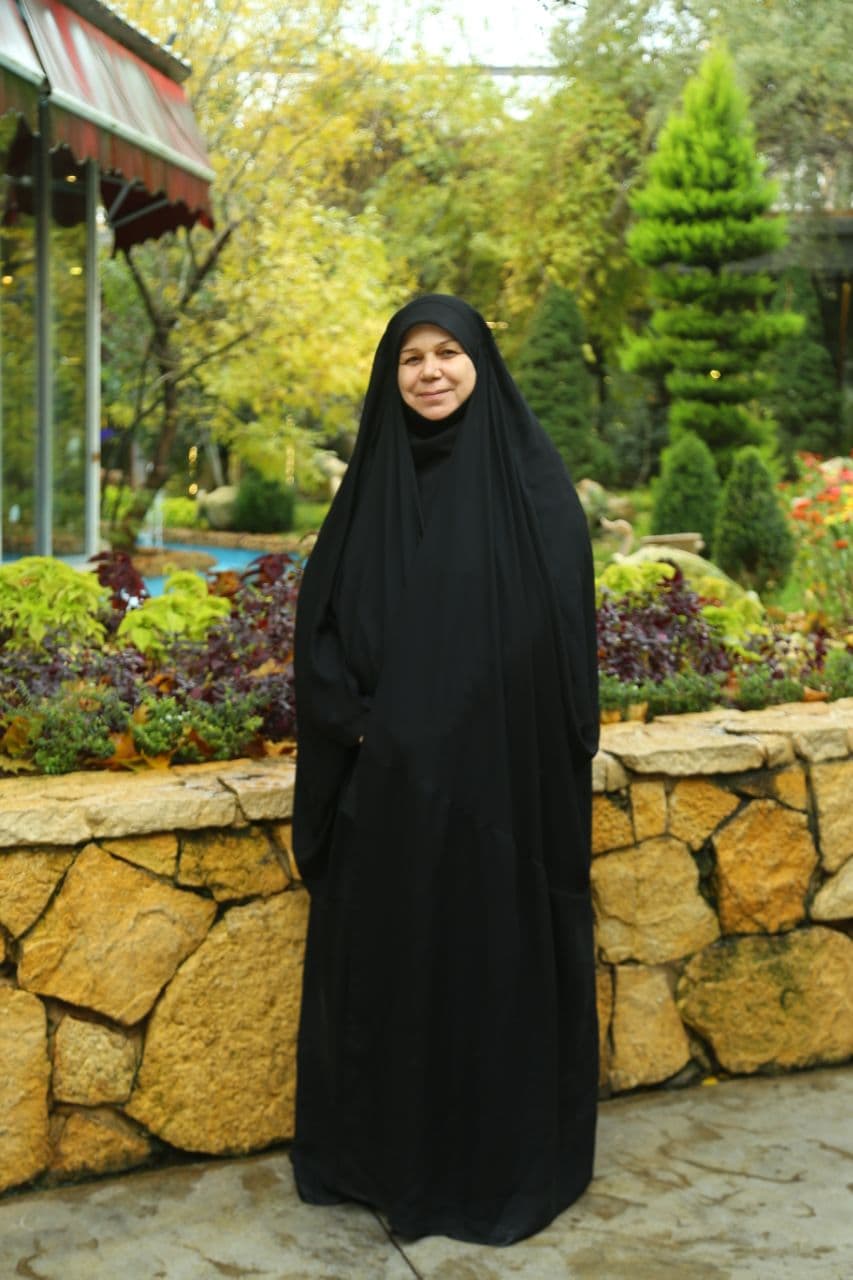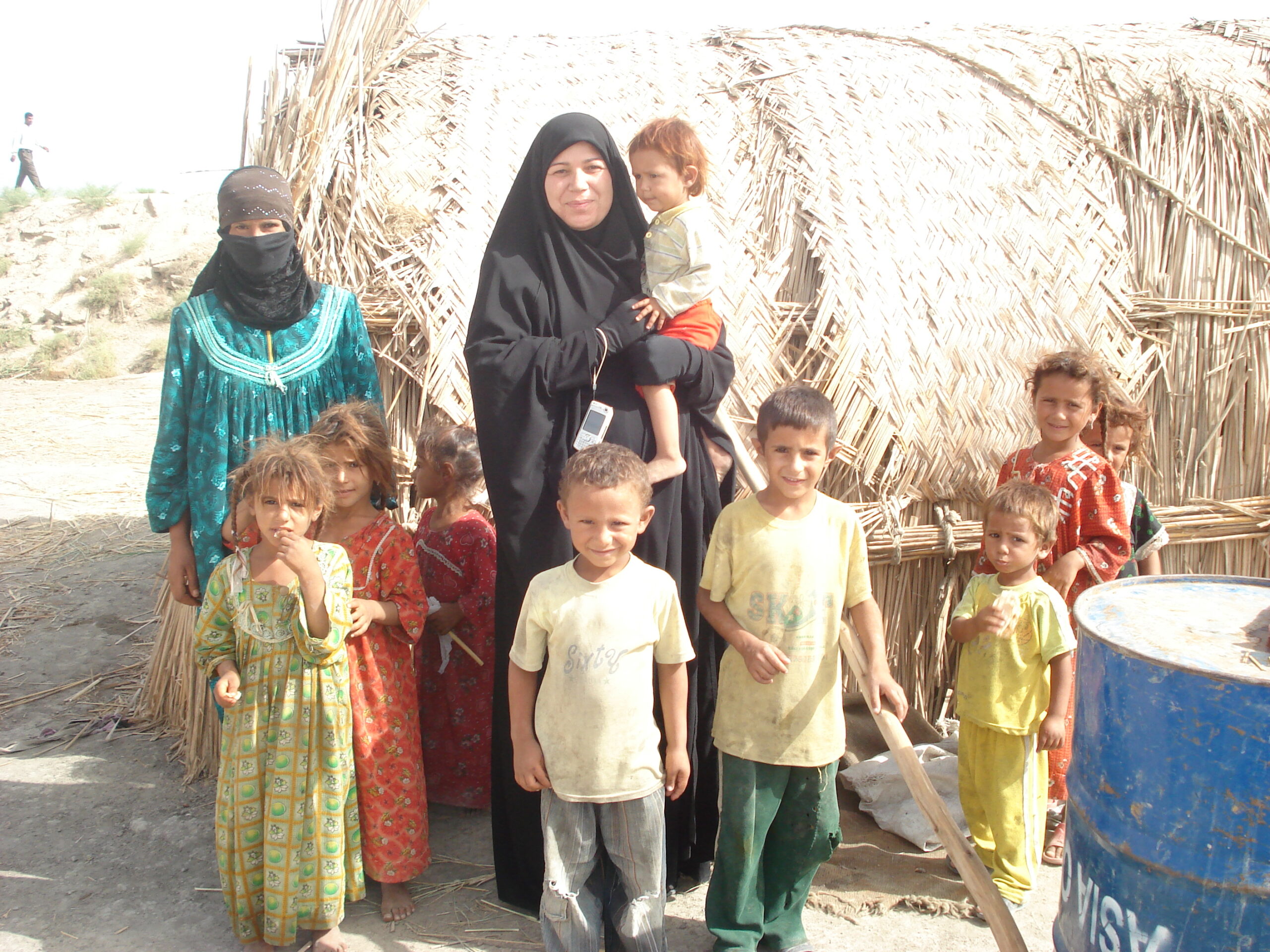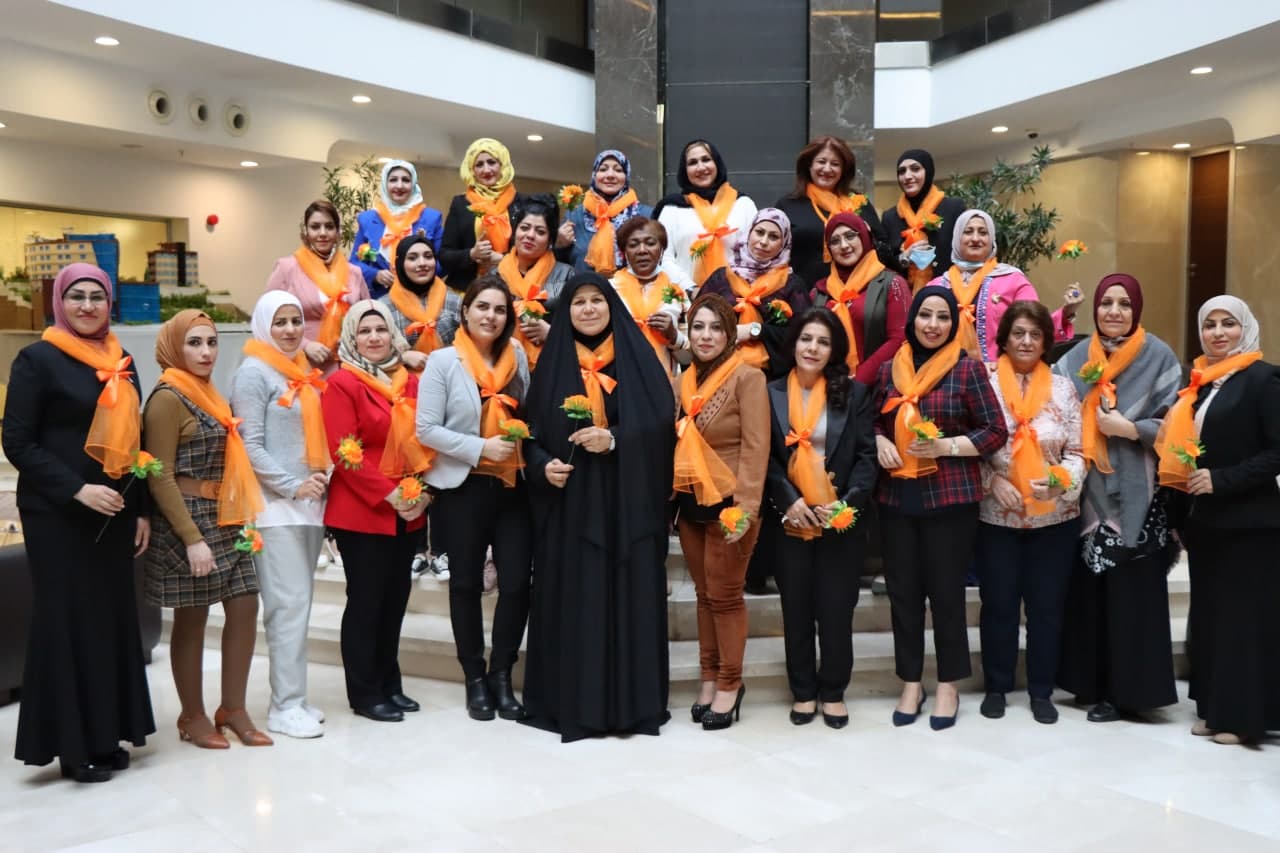Fatima al-Bahadly | Iraq
 “We worked on community cohesion between minorities in Iraq, as well as with families who were displaced due to the occupation of ISIS” -Fatima al-Bahadly
“We worked on community cohesion between minorities in Iraq, as well as with families who were displaced due to the occupation of ISIS” -Fatima al-Bahadly
Most are familiar with the perils and tumult that have beset Iraq for a large part of recent history. From a deadly war of attrition with Iran in the 1980s[1] to decades-long sectarian conflicts and the crippling sanctions and interventions of Britain and the United States,[2],[3] Iraq has known more than its fair share of bloodshed. More recently, the rise of the so-called Islamic State of Iraq and the Levant (ISIL) in 2014 and the harsh crackdown on anti-corruption protests have again left large portions of the population reeling. Basra, the residence of Peacemaker in Action Fatima al-Bahadly in southeastern Iraq, is no exception.
While Basra did not suffer the same brutal ISIL occupation as cities like Mosul and Raqqa, it did not entirely escape the organization’s acts of violence, let alone its socio-political influence. A daily witness to the draw and malice of ISIL, al-Bahadly has dedicated a significant amount of time to moderating its presence. To be sure, there has been no lack of mobilization around this common goal. But while many have decided that taking up arms is the most potent response, al-Bahadly has elected the opposite. Her means is peaceful moderation and the tedious trade of visits, meetings, talking, and teaching. In fact, her peace work targets not only those on the verge of taking up extremism but also those seeking violent recourse against it.
 Al-Bahadly’s brainchild is the Al-Firdaws Society, an NGO founded in 2003 which she currently directs. As mentioned, Al-Firdaws reaches out to young men living in precarity and at risk of joining armed militant groups. Additionally, Al-Firdaws works on community cohesion between minorities in Iraq, as well as with families who were displaced due to the occupation of ISIL. The NGO works towards a dual objective: a notable amount of time and energy also goes towards advocacy for the civil rights of women and girls of Basra. The two issues may be articulated separately on paper, but they are without a doubt inextricably connected. For instance, al-Bahadly intervenes in situations where women are targets of violence or even used as human currency to compensate for violence committed. Gender thus plays an integral role in the dynamics of violence, which is most often a recourse of men.
Al-Bahadly’s brainchild is the Al-Firdaws Society, an NGO founded in 2003 which she currently directs. As mentioned, Al-Firdaws reaches out to young men living in precarity and at risk of joining armed militant groups. Additionally, Al-Firdaws works on community cohesion between minorities in Iraq, as well as with families who were displaced due to the occupation of ISIL. The NGO works towards a dual objective: a notable amount of time and energy also goes towards advocacy for the civil rights of women and girls of Basra. The two issues may be articulated separately on paper, but they are without a doubt inextricably connected. For instance, al-Bahadly intervenes in situations where women are targets of violence or even used as human currency to compensate for violence committed. Gender thus plays an integral role in the dynamics of violence, which is most often a recourse of men.
 Where it concerns gender equality, the work of Al-Firdaws concentrates on the most marginalized women and girls. Often, these are young women living in rural southern Iraq, isolated from cosmopolitan society. Al-Bahadly and Al-Firdaws work with clerics and community leaders to alter the way they speak about women and the norms they establish around gender. Al-Firdaws intervenes explicitly to provide skill-building workshops and general education to women who would otherwise drop out of school due to early marriage or the burdens of running a household.
Where it concerns gender equality, the work of Al-Firdaws concentrates on the most marginalized women and girls. Often, these are young women living in rural southern Iraq, isolated from cosmopolitan society. Al-Bahadly and Al-Firdaws work with clerics and community leaders to alter the way they speak about women and the norms they establish around gender. Al-Firdaws intervenes explicitly to provide skill-building workshops and general education to women who would otherwise drop out of school due to early marriage or the burdens of running a household.

In order to “de-radicalize” young men, or rather, to prevent their radicalization, al-Bahadly invests an immense amount of time on the ground, visiting communities and speaking with those very men. Her methods are both material and theological. At times, al-Bahadly has raised money and collected donations to provide local youth with food and clothing so that they may have an alternative to joining groups like ISIL. Some gestures are as simple as offering wooden crosses to community churches, an act considered blasphemous by extremists in the area. In regard to faith (or “submission”), al-Bahadly works to draw on the same Quranic verses that violent clerics manipulate. In this way, she provides youth with alternate interpretations, understandings that prioritize tolerance and peace. She also highlights passages that explain there is no compulsion in belief, and presents sunnahs of interfaith cooperation in the life of the Prophet Muhammad.
 Dissuading young men from joining violent militias is a task deeply personal to al-Bahadly. At one point, her own son made off to join the violent resistance fighting the ISIL occupation. For 20 days, al-Bahadly searched military camps until she found her boy. It was only when he returned on leave a week later that she succeeded in convincing him that his efforts were best spent elsewhere, for his community and for his education.
Dissuading young men from joining violent militias is a task deeply personal to al-Bahadly. At one point, her own son made off to join the violent resistance fighting the ISIL occupation. For 20 days, al-Bahadly searched military camps until she found her boy. It was only when he returned on leave a week later that she succeeded in convincing him that his efforts were best spent elsewhere, for his community and for his education.
Interestingly enough, al-Bahadly recalls she did not comb those resistance camps with the sole intention of finding her son. Out of curiosity and compassion, she made her way through the bivouacs of young soldiers to better understand what brought them there and how they were faring. This effort is emblematic of al-Bahadly’s character as an individual, a peacebuilder, and a Muslim.
Tanenbaum is delighted to honor Fatima as a Peacemaker in Action, to have her as part of the Peacemakers in Action Network, and to support her work.
Even in dire straits, her capacity to listen to, empathize with, and take care of others remains dominant in principle and practice.
[1] https://www.brookings.edu/blog/order-from-chaos/2020/10/09/how-the-iran-iraq-war-will-shape-the-region-for-decades-to-come/